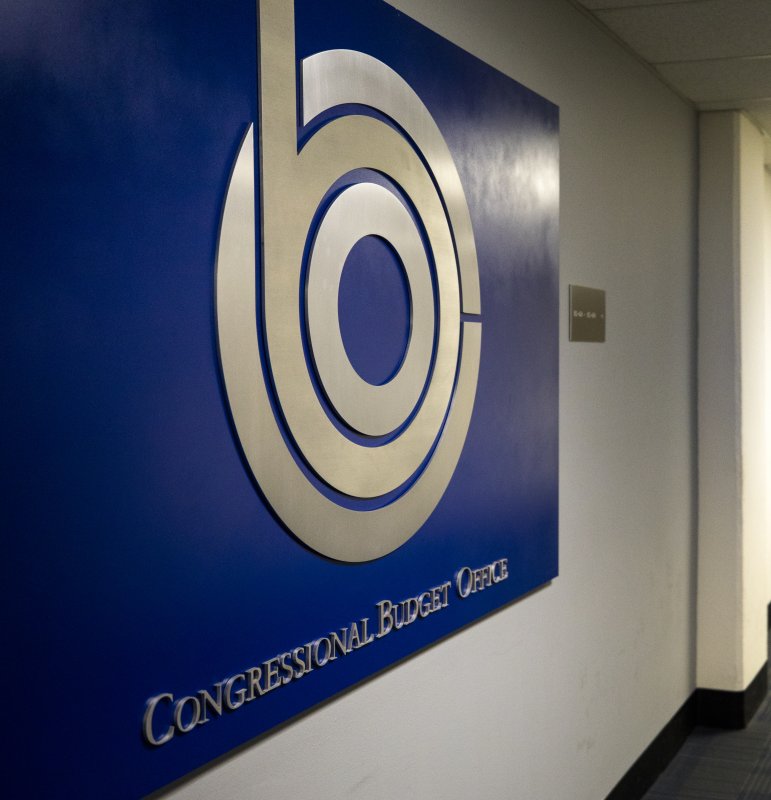A report released Monday by the nonpartisan Congressional Budget Office shows how emergency rescue payments during the coronavirus pandemic and falling tax revenue have tripled the U.S. budget deficit in the first 10 months of fiscal year 2020. File Photo by Jim Lo Scalzo/EPA
Aug. 10 (UPI) -- The federal budget deficit tripled in the first 10 months of the fiscal year 2020, up to $2.8 trillion compared with $0.9 trillion during the same period last year, the U.S. Congressional Budget Office said in a report Monday.
As Congress approved trillions of dollars in emergency economic rescue funding, federal outlays were 51% higher in the period, while tax revenues were 1% lower due to the economic downturn caused by the pandemic, the non-partisan agency said.
An analysis showed that revenue collections differed starkly before and after the start of the pandemic's economic disruption, the agency said.
"Through March, receipts were running 6% above last year's amounts," the report said. "And from April through July, they were 10% below last year's amounts."
Amounts withheld from workers' paychecks decreased by $74 billion, or about 9 percent because of a decline in wages. Corporate taxes fell by $27 billion, or 26%, because of economic disruption and emergency CARES Act tax incentives, the agency said.
Meanwhile, because individual and corporate taxpayers were allowed to file taxes on July 15 instead of in April this year, tax revenues in July were up to $563 billion, about 225% more than $251 billion in July 2019. However, revenues in the latest months of the pandemic this year dropped by 10% from last year all told, the agency said.
The delayed tax payments helped lower the federal budget deficit for July 2020 to $61 billion, the CBO estimated, down from $120 billion in the same month last year.
Spending in July rose to $624 billion, the agency estimated, about 68% more than $371 billion in outlays in July 2019. Most of those outlays were for federal unemployment payments, which increased to $110 billion this year mostly because of the $600 weekly federal benefit provided by the CARES Act, the agency said.
Other pandemic-related outlays included hospital and health-care provider reimbursements for pandemic losses, which rose to $17 billion this July, as compared with $243 million last July, the agency said. Medicaid spending increased by $7 billion as enrollment increased by 6.2% and states were required to keep enrollees on Medicaid until the end of the health emergency.
Congressional Republicans in the U.S. Senate have pointed to the national deficit as a reason to slow down a second round of national COVID-19 rescue payments. House Democrats rolled out a $3 trillion rescue bill in May, and GOP Senators unveiled a slimmed-down $1 trillion bill last month.
When negotiations stalled, President Donald Trump issued executive orders Saturday to provide an extra $400 in weekly unemployment aid, a payroll tax, eviction protection and relief from student loan debt. It remains to be seen whether Trump's orders will be challenged in court as outside the scope of the executive office, since most tax and financial legislation must be approved by Congress.















